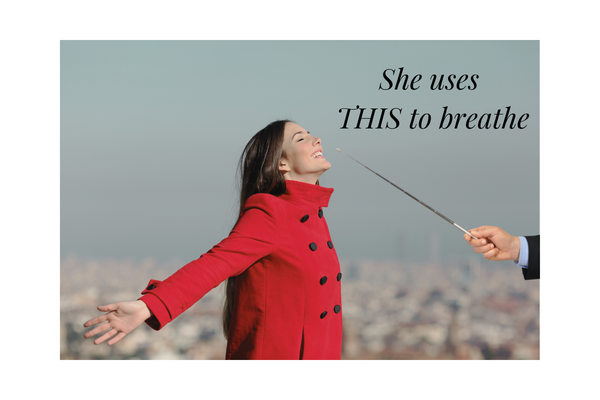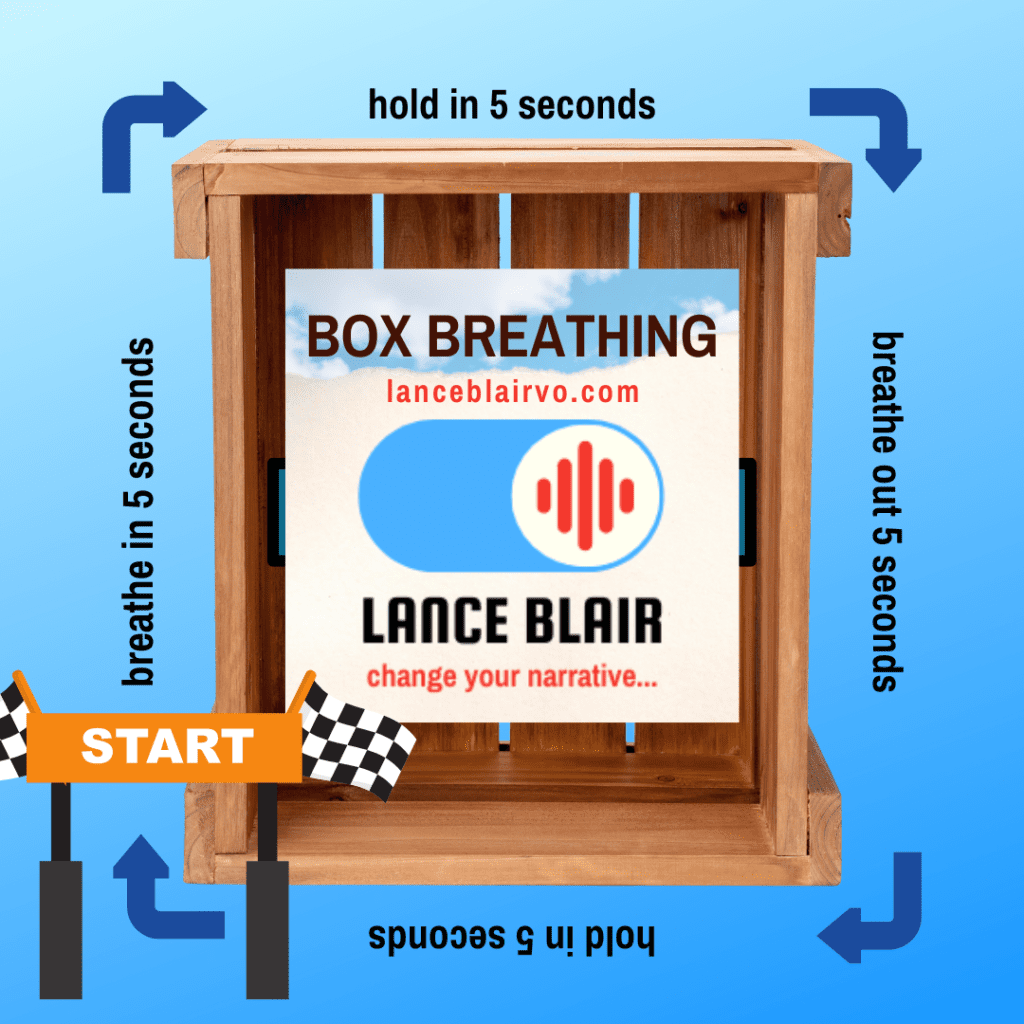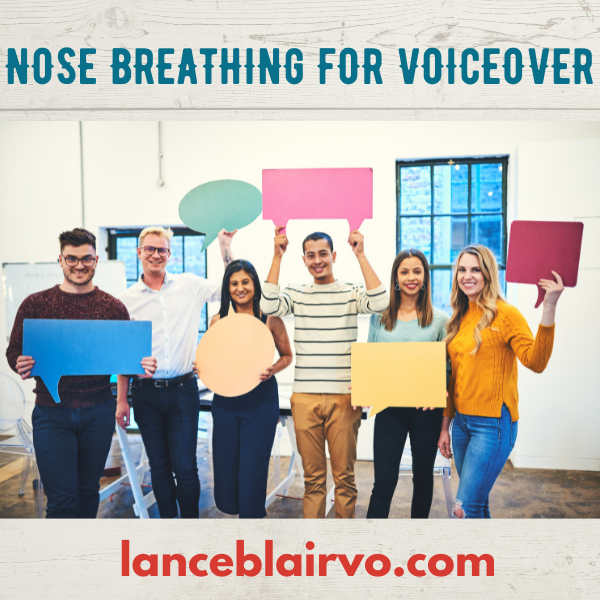The Secret to a Warmer, Stronger Voice
Would you like to know the secret to a stronger and warmer voice for voiceover?
“Yes! Do I need to get a U87 microphone?”
No.
“Do I need a new fancy preamp or the latest plugins?”
No.
“Oh, I got it! Do I need to do vocal warmups?”
That helps. But that won’t give you a stronger, warmer voice that will last.
“I give up! What is it?”
The secret is: Breathe through your nose!
The Challenge of Nose Breathing for Voiceover Talents
I have to admit, I never breathed through my mouth outside of exercise or sport until I started out in voiceover. It’s challenging to grab quick quiet breaths during a high-intensity video game or hard-sell commercial session with your nose. Nose breathing is often slower and deeper and can be rather noisy if you don’t do it all the time. But for me, getting back to nose breathing whenever possible over the past few years has made a huge difference to my voiceovers. We’ll look at the science behind it in the next section, but let’s look at the results first. With nose breathing my breath is deeper and supports my voice better. I take fewer breaths but can go longer with each breath. Three long sentences or 50-60 words is no problem, and the last word sounds as strong as the first. I can sing 25-second-long notes and still have some air left. As we will see, when you nose breathe, you’ll also have less mouth noise. So what’s better? A little nose breath noise that is easy to edit out, or smacking clicks all over your voiceover track?

The Science Behind Nose Breathing’s Benefits
My colleague, the very talented Jodi Krangle, recently shared a great podcast with voice coach Roger Love. The main discussion was about modulating voice pitch to sound more like-able and listenable. That’s a great tip in itself. However, at 22 minutes in, he drops the gem that he cured actors who kept losing their voice no matter what by teaching them to breath through their nose. He mentions that the nose has turbinates which clean and moisturize the air you breathe. When you breathe through your mouth, the air isn’t filtered, and it’s not moisturized. All that mouth-breathing air just dries out your throat eventually, no matter how much water you drink or how much you warm up.
On top of the moisturizing benefits of nose breathing, there are several other benefits to voiceover talents, actors, and singers from nasal breathing. Charlotte Eye Ear Nose & Throat breaks it down in this excellent blog post:
1. Nasal breathing can relax you. Conversely, short mouth breathing triggers the fight-or-flight response.
2. Nose breathing improves concentration. And we all know how mentally taxing voiceover can be!
3. Breathing through your nose better regulates the amount you breathe and increases lung volume.
4. It will help you recover better from voice performances, since your throat will be better moisturized and less stressed.
How to Develop or Regain Your Nose Breathing.
One of the best ways to develop or regain your nose breathing is to practice yoga. In addition, one can focus on yoga breathing exercises like Alternate Nostril Breathing or the deep, fast Breath of Fire . One of my favorite nasal breathing exercises is Box Breathing. Following the diagram below, imagine you start taking a five second breath up the left side of the box, then hold it for five seconds across the top. Then, exhale for five seconds down the right side, and then hold your breath for five seconds until you return to the start. And then you repeat around the box again, 5 to 10 times.

The more you practice these nose-breathing exercises, the more your nose will open up. And your nasal breathing wont be so wheezy and loud. When I first started working again on nose breathing, my right nostril was very blocked up and I could barely exhale through it. My left nostril is still stronger, but my right nostril has opened up and I can breathe strongly again through it. And it didn’t take long to notice a difference, just a few weeks.
I hope you give nose breathing a try for your voice if you don’t already. You will find you need to hydrate less in sessions. You will have dramatically less mouth noise. And you’ll have more breath to support your voice.
Thanks for reading and good luck!
All the best,
Lance

